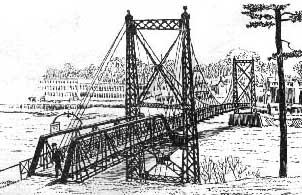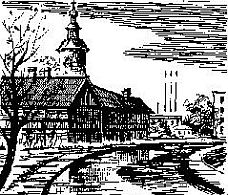 |
Kotlas - Waterville Area Sister City Connection P.O. Box 1747 Waterville, ME 04903-1747 Write to Us |
 |
 |
Kotlas - Waterville Area Sister City Connection P.O. Box 1747 Waterville, ME 04903-1747 Write to Us |
 |
|
Home > Projects > Humanitarian Aid Humanitarian Aid Arrives in KotlasOn January 21, 2000, more than 120 cubic feet of clothing, shoes, toys, and other humanitarian aid arrived in Kotlas. Intended to benefit the orphans and the handicapped of Kotlas, the goods were gathered during the previous winter and spring by the Kotlas Connection and by other friends of Kotlas in distant parts of the United States and Canada. This shipment was the Kotlas Connection's first major dispatch of humanitarian aid to Kotlas since it sent a cargo container of food, medicine, medical supplies, clothing, and school supplies to Kotlas in the spring of 1992. The Kotlas aid accompanied a much larger relief shipment organized by the Archangel Committee of Greater Portland, which donated space in its 40 ft. shipping container for the Kotlas cargo. The aid followed a long and torturous route to Kotlas. Originally scheduled to leave in the spring of 1999, the shipment was delayed while the Archangel Committee sought a federal grant to pay the freight. When this effort came to naught, the Archangel Committee raised the funds over the summer from Portland area donors. The aid finally sailed, from Seabrook, N.H., in early September. It arrived in Archangel two months later; but due to Russia's convoluted import regulations and procedures, the shipment did not clear Customs until the end of December. Finally, in mid-January, the Kotlas Society for the Handicapped, one of the beneficiaries, was able to send a truck to Archangel to bring the Kotlas aid the rest of the way. In Kotlas, the aid was divided among the Society, an orphanage for young children, and a boarding school for older orphans. The shipment included blankets, winter coats and other clothing, shoes, stuffed animals and other toys, a walker, a wheelchair, and a used personal computer. Russian customs officials removed a few items that did not fall within their strict definition of "humanitarian" aid, including medical texts, children's books, toiletries, a modem, floppy disks, and printer ribbons. This relief effort had arisen serendipitously a year earlier, in January 1999, through a chance combination of circumstances. First, Pauline Mayhew, a substitute teacher and member of the Kotlas Connection's executive committee, had discovered that good quality children's coats were going unclaimed in the lost and found bins at area elementary schools. After having gotten permission to "claim" the coats, she, Pat Hanson, and others had started to gather used winter clothing — jackets, sweaters, sweatshirts, shirts, pants, hats, and mittens — for children and adults from other local sources. The shipment also included baby formula, mattress pads for the bedridden, and a used personal computer. Hanson obtained the latter from the East West Foundation, a non-profit organization in Boston that refurbishes old computers donated by individuals and businesses and sells them to schools and non-profit organizations at a nominal price. This computer was destined for the Society for the Handicapped. As employment opportunities in Russia for people with disabilities were quite limited, this gift would allow members of the group to learn marketable computer skills. Meanwhile, Dawn Bond, one of the Kotlas Connection's newest and most energetic members, had begun her own relief effort for the House of the Child, an orphanage in Kotlas for children up to age 6. The California woman had sent e-mail solicitations to about 100 companies. As a result, we were able to send Dr. Smith's Diaper Rash Ointment, Rembrandt toothpaste, Adenna latex gloves, and 10 dozen King Plush bean-stuffed rabbits. Thanks to people whom Bond also contacted over the Internet, we also received boxes of baby clothes (and some for older children as well), shoes, toys, thermometers, and toothbrushes. These donations came from various states — including California, New York, Minnesota, Utah, South Carolina, and Texas — and even from the province of British Columbia. In all, the contributions received through Bond's efforts composed roughly half of what we sent to Kotlas. The final fortuitous circumstance was the availability of space in the cargo container going to Archangel. The Archangel Committee had started its own humanitarian relief effort for hospitals and orphanages in Archangel and offered space in the container to the Kotlas Connection. The Archangel Committee sent the same kinds of goods as the Kotlas Connection, with the addition of large quantities of medical supplies (e.g. disposable syringes, rubber gloves, bandages) and equipment (e.g. wheelchairs, hospital beds). Most of the latter is coming from the International Medical Equipment Collaborative of Seabrook, NH. IMEC was a non-profit clearinghouse that sought donations of used medical supplies and equipment from doctors' offices, hospitals, and nursing homes for shipment to less developed countries. While IMEC supplied the goods, it would up to a "shepherding organization," like the Archangel Committee, to pay for the shipping. By Gregor Smith This article was adapted from two separate articles that originally appeared in the Kotlas Connection's Spring 1999 and Spring 2000 newsletters. |